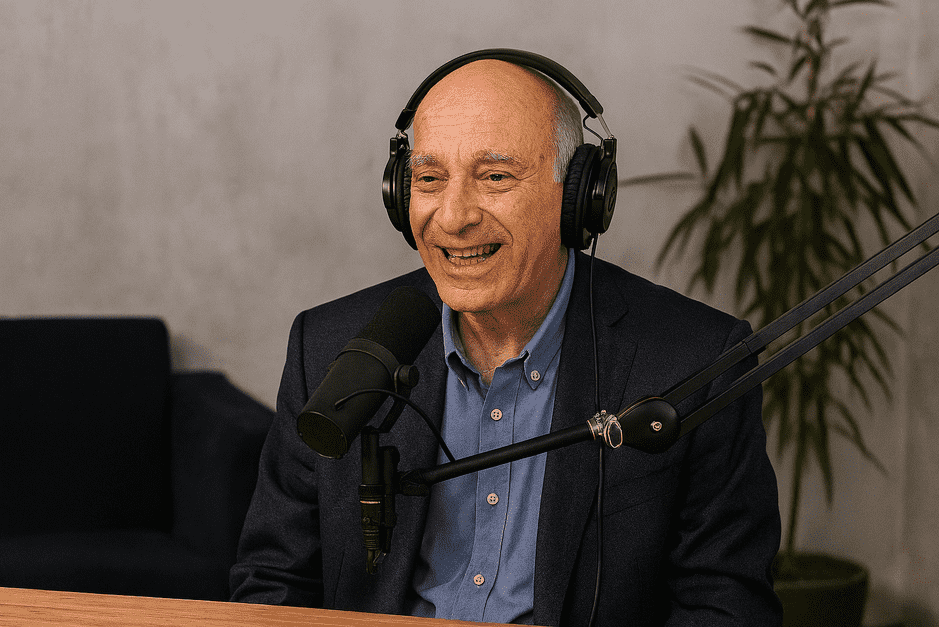Introduction: Why Rough-Diamond Sales Changed Forever
In the latest Rapaport Diamond Podcast, Adam Schulman, founder and CEO of Koin International, explained how tenders and auctions reshaped rough-diamond sales. Before tenders became common, miners relied on informal, over-the-table deals. As a result, prices often stayed flat and buyers controlled the market.
During the conversation with Joshua Freedman, Schulman shared how competition improved transparency and why miners now prefer tenders. Because of these changes, auctions and tenders dominate the global trade today.
From Private Bags to Transparent Tenders
For decades, dealers bought rough diamonds in closed rooms, carrying bags of stones and making quick offers. While this approach worked for some, it lacked transparency. Therefore, Schulman saw a gap in the system.
- 2005: He co-founded Fusion Alternatives with I. Hennig. Since it was the first independent tender platform, it allowed small and mid-sized miners to reach more buyers.
- 2015: He launched Koin International to expand the model. After its success, tenders became the preferred sales method.
- Today, over 70% of rough diamonds are sold via tenders or auctions.
At the same time, De Beers and Alrosa continued their sight system. Yet miners shifted toward tenders because they could secure stronger competition and higher prices.
Learn more: How Diamond Auctions Work.
Q&A with Adam Schulman
Q: Why did tenders change the market?
A: Before tenders, miners often had no choice but to accept fixed offers. After tenders gained traction, they attracted hundreds of buyers and achieved 10–15% higher prices.
Q: Why did Koin relocate from Antwerp to Dubai?
A: “During Covid-19, Antwerp became difficult for global access. Meanwhile, Dubai offered lower tax, better logistics, and faster growth,” Schulman explained.
Q: Are tenders the new standard?
A: “Yes. Over time, tenders proved more transparent and competitive, so miners prefer them.”
The Business Impact of Tenders
Because miners wanted fair pricing, tenders delivered results. For example:
- In early Koin tenders, small miners gained 20% more revenue compared to direct deals.
- Dubai now accounts for 40% of global rough-diamond trade, proving its rise as a key hub.
- Koin hosts more than 20 tenders each year, drawing buyers from India, Belgium, Israel, and the UAE.
See also: Why Dubai Became a Diamond Hub.
Adam Schulman Beyond Diamonds
After years of building Koin, Schulman still finds time for his passion: photography. While leading diamond tenders, he also captures wildlife across deserts and safaris. His work appears on Instagram at @adam_s_photography.
For inspiration, explore Gemstone-Inspired Photography.
Adam Schulman, CEO of Koin International, joined the Rapaport Podcast to explain how tenders and auctions changed rough-diamond sales. From Antwerp to Dubai, the shift introduced transparency, competition, and better prices for miners. Today, auctions dominate because they bring more buyers and fairer results.
Suggested Reading:
Guide to Diamond Market Trends
History of Rough-Diamond Trading
Introduction
This Responsible Travel FAQ provides comprehensive answers to help you make ethical tourism choices.
Our guide covers eco-friendly accommodations, local community support, sustainable transportation, cultural respect, wildlife ethics, and ways to reduce waste.
Following these practices ensures your adventures benefit both destinations and travelers.
What is Responsible Travel and Why Does It Matter?
Responsible travel means making conscious choices that minimize negative impact while maximizing benefits for local communities and the environment.
Tourism generates $1.4 trillion annually but produces 8% of global carbon emissions.
Your travel decisions affect local economies, cultural preservation, and environmental conservation.
How Do I Choose Sustainable Accommodations?
Look for eco-certifications such as:
- Green Key
- LEED building standards
- EarthCheck approval
- Rainforest Alliance verification
Check if hotels use renewable energy, water-saving systems, and source food locally.
Ask about waste reduction programs and community involvement. Calling properties directly helps verify claims.
Transportation Options for Responsible Travel
- Train travel emits 80% less carbon than flying for similar distances.
- Choose direct flights when necessary and book economy class.
- Use public transport, bicycles, or walk instead of renting cars.
- Consider verified carbon offsets for unavoidable flights.
Supporting Local Economies
- Buy from locally-owned businesses instead of chains.
- Book community-based tours with local guides.
- Eat at family-owned restaurants with local ingredients.
- Stay in homestays or boutique hotels rather than international chains.
- Purchase authentic handicrafts fairly from artisans.
Packing Tips for Responsible Travel
- Reusable water bottle with filtration
- Solid toiletries to reduce plastic
- Reef-safe mineral sunscreen
- Reusable shopping bags
- Bamboo or metal utensils
- Portable laundry soap
Pack light and choose durable, multipurpose items.
Respecting Local Cultures
- Learn cultural customs, dress codes, and etiquette.
- Learn basic local phrases.
- Dress appropriately for religious and conservative areas.
- Ask permission before photographing people.
- Participate respectfully in cultural activities.
Ethical Wildlife Encounters
- Maintain safe distances and avoid feeding animals.
- Choose conservation-focused sanctuaries, not entertainment attractions.
- Avoid elephant rides, direct contact, or photo opportunities with captive animals.
- Use certified naturalist guides who prioritize welfare and habitat protection.
Reducing Waste During Travel
- Use reusable containers, bags, and utensils.
- Refuse single-use plastics.
- Choose digital tickets and receipts.
- Carry a small trash bag where disposal is limited.
Questions to Ask Tour Operators
- Are staff local and fairly paid?
- How does your business give back to communities?
- What environmental practices are in place?
- Are group sizes limited to reduce pressure on sensitive areas?
- Are wildlife experiences ethical and conservation-focused?
Money and Overtourism Practices
- Use local ATMs and tip according to local customs.
- Support social enterprises and cooperatives.
- Visit during shoulder seasons, off-peak hours, or lesser-known areas.
- Stay longer in fewer destinations.
Responsible Travel on a Budget
- Cook using local market ingredients.
- Use public transportation.
- Stay in local hostels, guesthouses, or homestays.
- Explore free cultural events or walking tours.
- Exchange skills or volunteer for free accommodation.
Pre-Travel Research
- Learn about environmental challenges and cultural sensitivities.
- Check seasonal weather and political situations.
- Identify local organizations to support.
- Read destination-specific responsible travel guides.
Creating a Positive Impact Post-Travel
- Share authentic stories on social media.
- Write detailed reviews for responsible businesses.
- Continue supporting local organizations.
- Apply sustainable practices in daily life.
- Recommend responsible travel to others.
Learn more:



